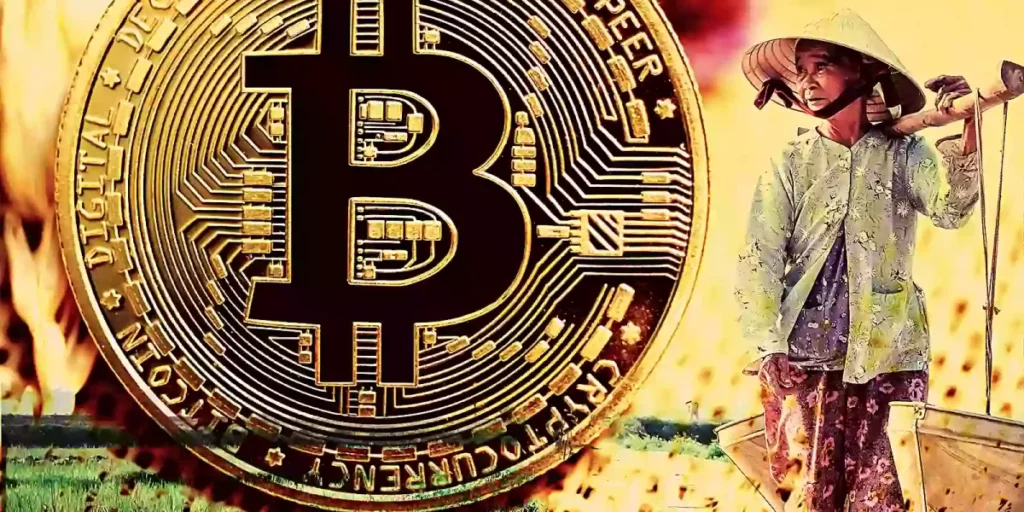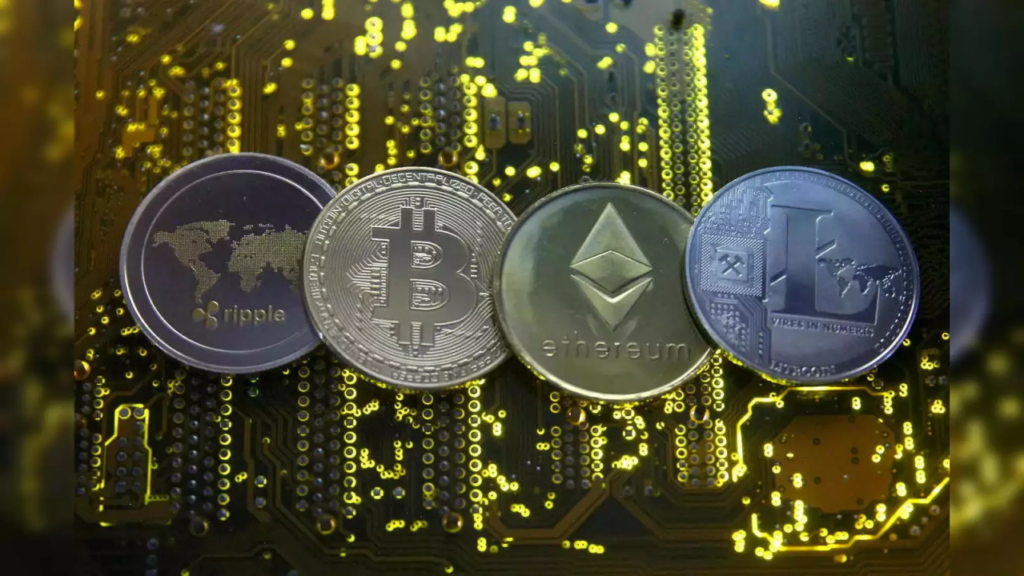Post map
ToggleIs cryptocurrency (also known as virtual currency) considered an asset in Vietnam? What are the administrative and criminal regulations regarding cryptocurrency transactions? In this article, Optimal FB will help you answer Is cryptocurrency legal in Vietnam these questions!
What is Cryptocurrency?
Cryptocurrency, also known as digital currency, is a form of money that exists entirely in digital form and has no physical form like paper money or coins. Unlike traditional money issued and managed by central banks and governments, cryptocurrency operates on blockchain technology or distributed ledgers, ensuring transparency and security in transactions.
Cryptocurrencies are not controlled by any central financial authority. Instead, they rely on distributed networks to verify and record transactions. This helps reduce transaction costs and increases efficiency. Notable examples of cryptocurrencies include Bitcoin, Ethereum, and Litecoin. Each type of cryptocurrency may have different applications and uses, from investment and trading to executing smart contracts and decentralized financial applications. One of the advantages of cryptocurrencies is the ability to transact quickly and globally without intermediaries. However, using cryptocurrencies also comes with challenges such as high price volatility, security risks, and legal issues in many countries. Despite these challenges, cryptocurrencies are becoming increasingly popular and widely accepted in financial transactions and applications.
Is Cryptocurrency Legal in Vietnam?
Currently, cryptocurrencies or virtual currencies are not clearly regulated in Vietnam’s legal system, including an official definition. However, we can simply understand that cryptocurrency is a type of money encrypted in numerical form and transactions are conducted over the internet.
According to Article 17, Clause 2 of the Law on the State Bank of Vietnam 2010, “Paper money and coins issued by the State Bank are the legal means of payment within the territory of the Socialist Republic of Vietnam.” This means that money issued by the State Bank, including paper money and coins, is the legal means of payment in Vietnam.
Additionally, Decree 101/2012/ND-CP on non-cash payments, as amended and supplemented by Decree 80/2016/ND-CP, stipulates in Clause 6, Article 4 that: “Non-cash payment instruments used in payment transactions (hereinafter referred to as payment instruments) include: Checks, payment orders, payment authorizations, collections, collection authorizations, bank cards, and other payment instruments as prescribed by the State Bank.” At the same time, Clause 7 of this Article states: “Illegal payment instruments are payment instruments not specified in Clause 6 of this Article.”
Furthermore, according to Official Letter 5747/NHNN-PC in 2017, virtual currencies, including Bitcoin and Litecoin, are not recognized as currency and are not legal means of payment according to Vietnamese law.
Based on these regulations, cryptocurrency is currently not considered a legal means of payment in Vietnam.

Cryptocurrency is not yet recognized as an Asset
According to Clause 1, Article 105 of the Civil Code 2015, assets are defined as follows:
- Assets are objects, money, valuable papers, and property rights.
- Assets include immovable property and movable property. Immovable and movable property can be existing property and future property.
Based on these regulations, the current law recognizes four main types of assets:
- Objects: These are tangible assets such as gold, vehicles, land, houses, and other physical assets. These objects can be easily identified and valued based on specific standards.
- Money: Money is considered the official means of payment issued by the State of Vietnam and is protected in terms of value by the State. Money includes both domestic and foreign currency, playing an important role in valuing, exchanging, and paying for other types of assets.
- Valuable Papers: These are financial assets such as government bonds, corporate bonds, promissory notes, shares, bills of exchange, and checks. These papers are commonly used in financial transactions and can be transferred.
- Property Rights: Property rights include rights that can be valued in money, such as intellectual property rights, land use rights, and other property rights. These rights can be valued and traded similarly to tangible assets.

However, according to current legal regulations, cryptocurrency (virtual currency) is not recognized as a legal asset. This means that cryptocurrency is not considered one of the four types of assets defined, and all transactions involving cryptocurrency carry significant risks. The lack of recognition also leads to legal ambiguity in handling transactions and disputes related to cryptocurrency.
Contact Info
You need a Facebook advertising account but don’t know any reputable provider. Coming to
Optimal FB is where you will experience what you need facebook crypto ads prestige, high trust, and professional consulting and service support for customers.
FAQ
Trading virtual currency in Vietnam is currently not recognized as legal according to existing legal regulations. Based on current regulations, virtual currency is not considered a legal means of payment and is not recognized as an asset under the law. This means that transactions, investments, or trading in virtual currency may face significant legal risks. The government and regulatory agencies have issued warnings about participating in activities related to virtual currency, emphasizing that such transactions are not protected and may not be legally recognized. Therefore, individuals and businesses should carefully consider and thoroughly understand the legal regulations before engaging in virtual currency trading activities.


